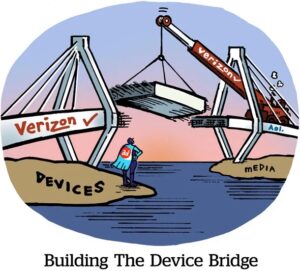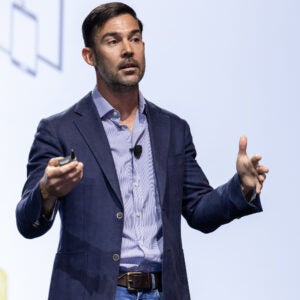Facebook’s decision to shut off partner categories and turn down the spigot of data flowing into and out of its platform may be a necessary step to comply with GDPR and improve consumer privacy.
But Facebook could’ve given partners more notice, rather than wait until two months before GDPR goes into effect, said Arun Kumar, chief marketing and data officer at IPG Mediabrands at AdExchanger’s Programmatic IO in San Francisco on Wednesday.
“They should’ve had those conversations with third-parties a year ago,” he said.
Still, agencies should worry less about the removal of data access on Facebook and more about how they’re ethically sourcing, storing and using data in compliance with GDPR, Kumar said.
“It’s a GDPR and a data issue,” he said. “All I’m interested in, whether it’s Facebook or anyone else, is how am I creating segments, and how true are those segments?”
Facebook’s third-party data restrictions likely won’t extend to first-party data matching on its platform as long as that data has been obtained and collected compliantly, Kumar said. Similar data limitations also probably won’t occur on platforms like Google, because they have different partnerships in place than Facebook, and their platforms work differently.
“It’s not a like-for-like comparison,” he said.
But under GDPR, there will be immense pressure for other third parties to get consent. If they struggle to do so, GDPR has the potential to stifle innovation.
“When you have a certain set of rules for people who have resources, investment and capabilities and you prevent smaller players from innovating, I don’t think that serves the interest of the consumer,” he said. “Where is innovation going to come in the market?”
Meanwhile walled gardens have an opportunity to consolidate their data clout under GDPR, suppressing smaller competitors. Kumar suggested regulators should make the cost of implementation the same for everyone by subsidizing smaller players.
“The duopoly has the data and can choose to make it available in certain ways,” Kumar said. “Regulation will make it easier for them to build walls … If you’re going to stifle an industry with regulation you need to be careful.”
Despite these challenges, Kumar thinks GDPR is good for the industry – and will help programmatic deliver on its original promise to make better, more relevant and useful ads, something it’s failed to do because of a focus on driving down prices.
“The two words that drive a lot of decision-making are still volume and price,” he said. “Volume matters, and we’re addicted to low price. Even in programmatic, when you’re negotiating the cost of the tech provider the price still comes through.”













